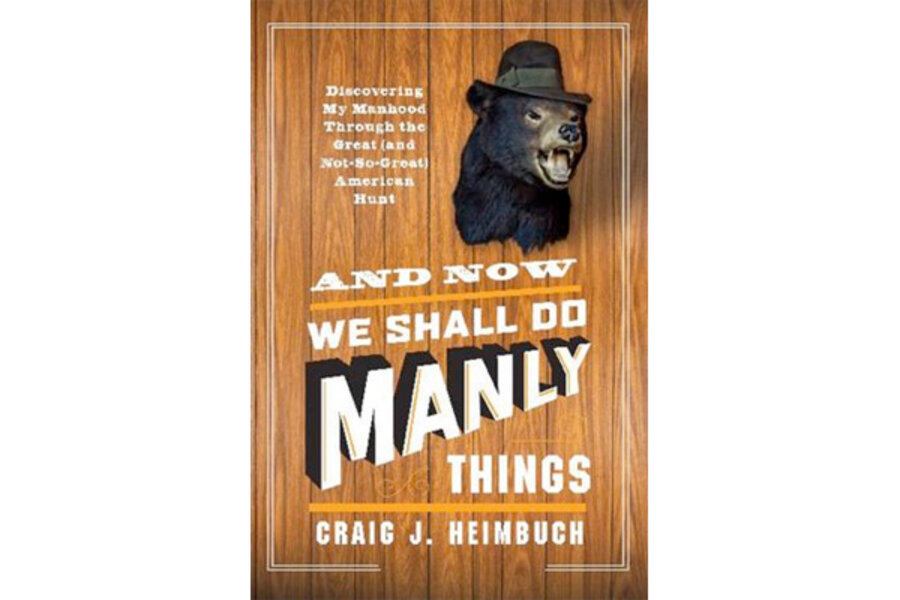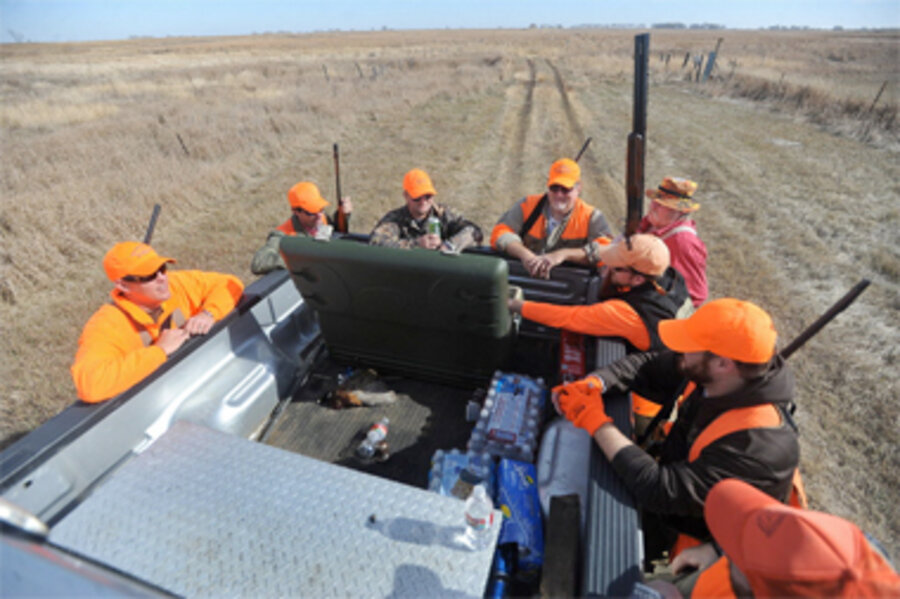Before Heimbuch's father gave him a shotgun, Heimbuch had gone hunting a few times. One experience was with his father and his father's client at a private club which offered pheasant shooting. Heimbuch says it wasn't the most challenging experience. "You tell the man at the front desk how many birds you'd like to shoot, a transaction is made, and you are given a field assignment," he wrote. "While you, the hunter, are sorting out your gear and, perhaps enjoying a drink from the bar, workers from the club place your prepurchased birds in the field. I can't be sure, but I suspect this involves dosing the pheasant with adult-sized portions of NyQuil, then laying them among the scrub grass of the football-field-sized hunting lanes."
 Mark Sappenfield
Mark Sappenfield
Dear Reader,
About a year ago, I happened upon this statement about the Monitor in the Harvard Business Review – under the charming heading of “do things that don’t interest you”:
“Many things that end up” being meaningful, writes social scientist Joseph Grenny, “have come from conference workshops, articles, or online videos that began as a chore and ended with an insight. My work in Kenya, for example, was heavily influenced by a Christian Science Monitor article I had forced myself to read 10 years earlier. Sometimes, we call things ‘boring’ simply because they lie outside the box we are currently in.”
If you were to come up with a punchline to a joke about the Monitor, that would probably be it. We’re seen as being global, fair, insightful, and perhaps a bit too earnest. We’re the bran muffin of journalism.
But you know what? We change lives. And I’m going to argue that we change lives precisely because we force open that too-small box that most human beings think they live in.
The Monitor is a peculiar little publication that’s hard for the world to figure out. We’re run by a church, but we’re not only for church members and we’re not about converting people. We’re known as being fair even as the world becomes as polarized as at any time since the newspaper’s founding in 1908.
We have a mission beyond circulation, we want to bridge divides. We’re about kicking down the door of thought everywhere and saying, “You are bigger and more capable than you realize. And we can prove it.”
If you’re looking for bran muffin journalism, you can subscribe to the Monitor for $15. You’ll get the Monitor Weekly magazine, the Monitor Daily email, and unlimited access to CSMonitor.com.







